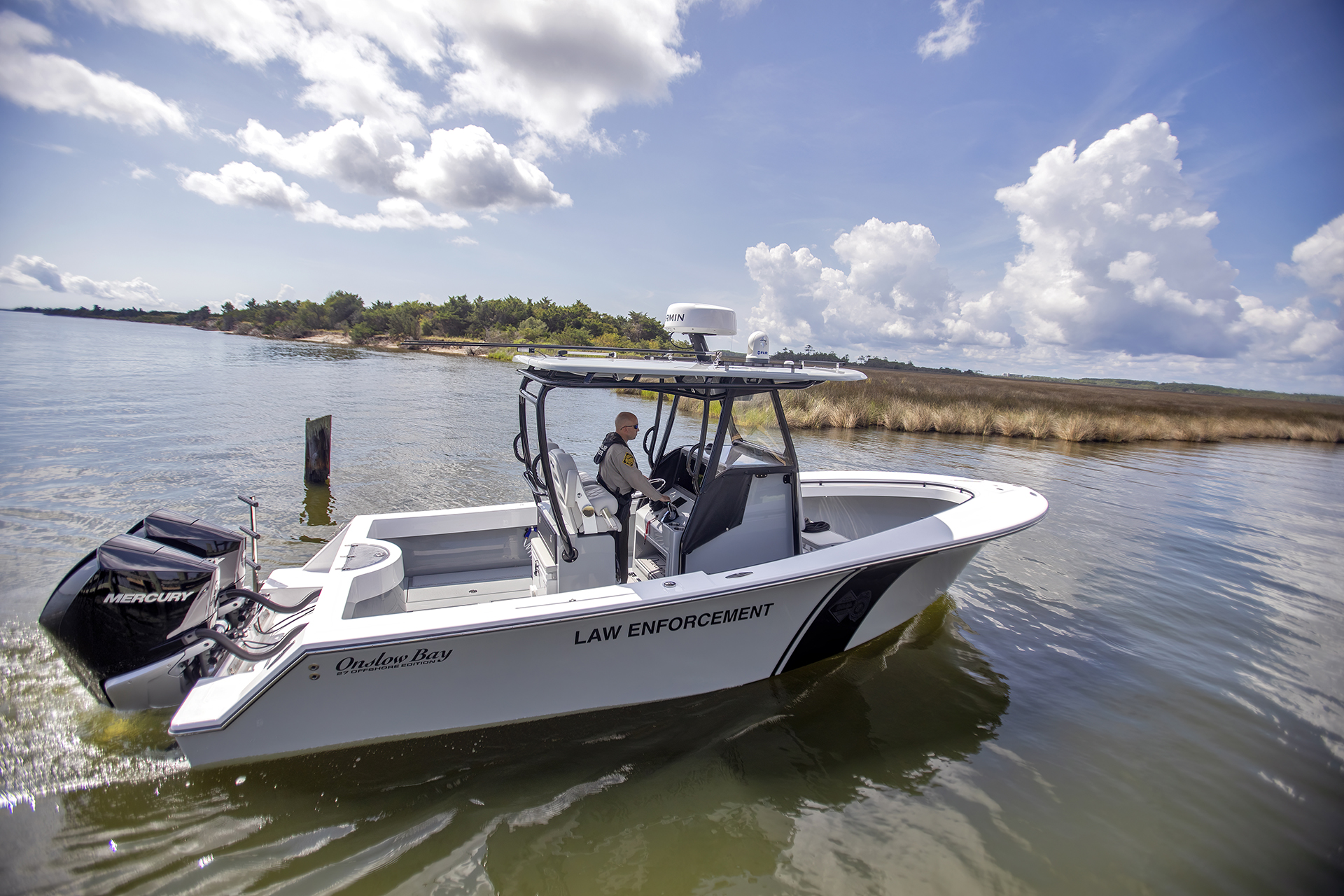
Posted: September 19th, 2023
In 2022, 148 boating incidents occurred in North Carolina, resulting in dozens of deaths. Even with robust boating regulations, training resources available to boaters, and a number of boating safety campaigns, boating safety remains a concern for the thousands of boaters on North Carolina’s waterways. Ensuring effective adherence to boating laws requires a multi-pronged, collaborative approach.
This is just what Wake Forest Law professors Alyse Bertenthal and Scott Schang are aiming to do. Through a recently-awarded grant from the North Carolina Wildlife Resources Commission (NCWRC, ncwildlife.org), they are partnering with biologists, wildlife law enforcement officers, social scientists, and policy analysts to leverage expertise from across fields to improve boating safety law and the practices of law enforcement.
The two primary goals of the project are: 1) to use data to determine practices, programs, and legal structures that promote compliance with boating safety laws and regulations; and 2) to develop interventions to improve compliance with safety laws. “The questions we are seeking to help law enforcement answer are how are officers interpreting and implementing laws through daily practice?” says Professor Bertenthal. “How are they making decisions, and are there ways to structure those processes to ensure that boating safety laws are applied effectively and equitably?”
Project co-investigators include professors from North Carolina State University, Drs. Nils Peterson and Krishna Pacifici in the Fisheries, Wildlife and Conservation Biology Program. Additionally, all of the work being done is in consultation with the NCWRC and representatives of the agency. “The overall goal of the NCWRC’s Law Enforcement Division is to provide the boating public with a safe and enjoyable recreational boating experience through both law enforcement efforts and educational opportunities,” says Maj. Mark Dutton, the agency’s State Boating Law Administrator. “We are excited to partner with Wake Forest Law and NC State and look forward to seeing what their research shows. We value any measures that would overall improve public safety and the boating experience.” Major Dutton is joined on the project by NCWRC staff Carrie Ruhlman, Cristina Watkins, Fairley Mahlum, Capt. Branden Jones, and Amy Braun. “This project builds valuable partnerships between Wake Forest, NC State, and the Wildlife Resources Commission,” says Bertenthal. “It promises to make an impact in North Carolina by generating knowledge about effective and efficient law enforcement practices to ensure boating safety.”
In addition to analyzing statistical data collected by the NCWRC, investigators will conduct interviews, review observational data from ride-alongs with law enforcement officers, and conduct boater surveys. The investigators will also review case files and interview assistant district attorneys to identify legal outcomes and law enforcement officer practices that affect those outcomes. Investigators will use the data analysis to develop interventions and best practices–-effectively turning data collection and analysis into tangible solutions.
The project also leverages student interest in real-world law enforcement practices. Professors Bertenthal and Schang will incorporate research activities and analysis into their courses, providing students an avenue for hands-on, experiential learning—a hallmark of a Wake Forest Law education. “This presents students with a terrific opportunity to understand how law enforcement works in the field while contributing to the Commission’s efforts to improve the effectiveness of their efforts,” says Schang. “Students will not only gain insight into how science is used vis-a-vis the law, but they will also have the chance to think creatively and strategically about applying the law.”
The collaboration between scholars, students, and agencies offers an exciting model for research that has potential to effect change throughout the state. Boaters traverse more than 5,000 miles of North Carolina waters and it is critical that they understand and comply with the rules and regulations to ensure safety. Ongoing examination of law enforcement practices through projects like this provide important opportunities for delivering that assurance.




